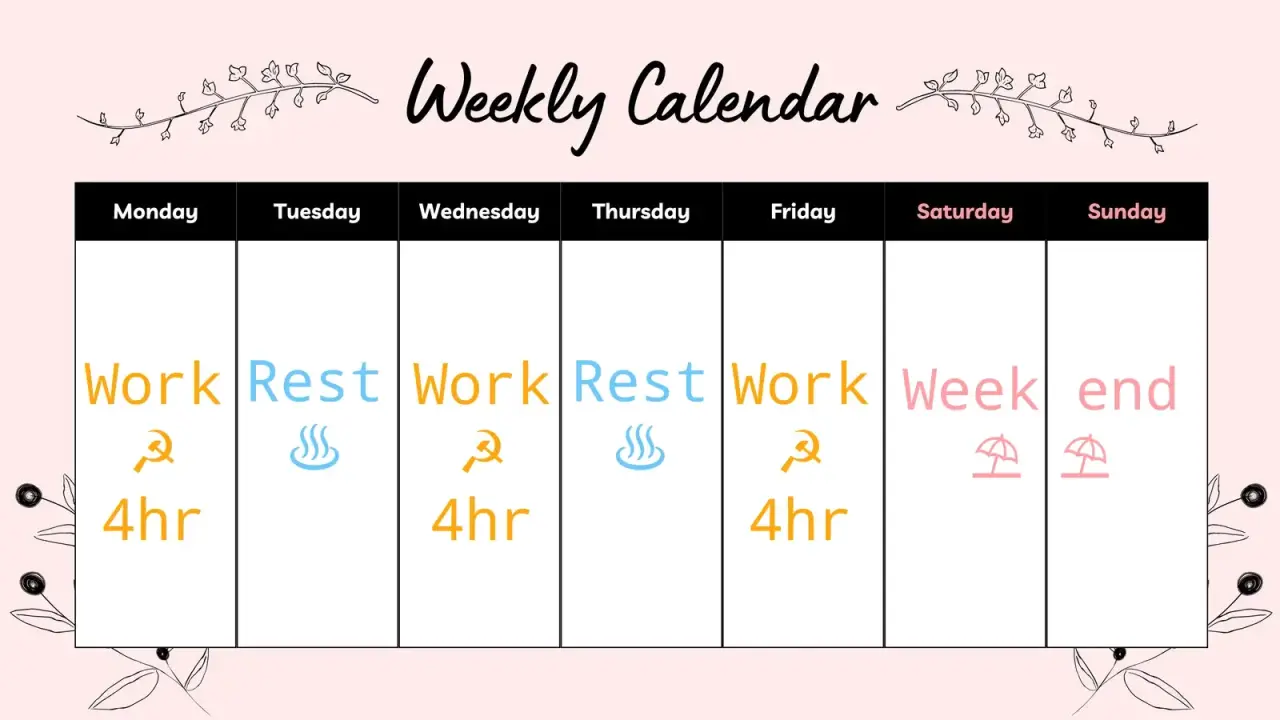🥳
Now let's go for 12 hour tit for tat work weeks!
Nú skulum við fara í 12 tíma vinnuvikur þar sem við skiptum á milli!

A place to discuss positive changes that can make work more equitable, and to vent about current practices. We are NOT against work; we just want the fruits of our labor to be recognized better.
Our Philosophies:
Our Goals
🥳
Now let's go for 12 hour tit for tat work weeks!
Nú skulum við fara í 12 tíma vinnuvikur þar sem við skiptum á milli!

Don't worry. Us Americans will entirely ignore that other 1st world nations have a better quality of life and we'll continue to allow our abusers to abuse us more.
except for the nazis who will declare that better quality of life is only possible if the population is all "white"
There were fears of a drop in productivity, increased costs for businesses and difficulties in adapting to maintain service levels. However, the Icelandic experience has swept these fears under the carpet.
I don’t think that metaphor means what they think it means.
Idiom, bruv
Whadid y'all call me
I would love that. Just one more day, one more day a week to do my own activities. That would help so much with all the anxieties.
I was lucky enough to experience the 4 day work week for 1 glorious year. I used my extra day to schedule weekday appointments without taking time off, taking care of chores so I could enjoy the weekend more, and doing more hobbies when I wasn't doing those other 2 things. It was the best quality of life I ever had.
This is where unions really dropped the ball. I feel in the eighties and even back in the seventies they were pushing for overtime over increased staffing and thus membership plus not going for lower work week. Its crazy that the work week increased over the last 50 years (well in the us).
How does a 36-hour workweek work out to a four-day workweek?
Here in Norway everyone in sneezing distance of a union deal has a five-day workweek at 7.5 hours a day, for 37.5 hours in total. (The law says six days at 8 hours; the half-hour difference is in practice lunch, which is your own time with a union deal and the boss' time without. I think we could go down to 7h a day and get an hour of lunch like our neighbours.)
9 x 4 = 36
IANI (I am not Icelandic) but that's my guess based on currently-accepted mathematical models.
Probably four 9 hour days
There's nothing probable about the combination of a Nordic country and a 9-hour workday.
The Icelandic experiment began in 2015 with a pilot phase involving around 2,500 employees, or just over 1% of the country’s working population. Following the resounding success of this initiative, with 86% of the employees involved expressing their support, the project was made official in 2019 . Today, almost 90% of Icelandic workers benefit from a reduced working week of 36 hours, compared with 40 hours previously, with no loss of pay. Initial concerns about the four-day week were widespread, both in Iceland and elsewhere in the world. There were fears of a drop in productivity, increased costs for businesses and difficulties in adapting to maintain service levels. However, the Icelandic experience has swept these fears under the carpet.
The Icelandic experiment began in 2015 with a pilot phase involving around 2,500 employees, or just over 1% of the country’s working population. Following the resounding success of this initiative, with 86% of the employees involved expressing their support, the project was made official in 2019 . Today, almost 90% of Icelandic workers benefit from a reduced working week of 36 hours, compared with 40 hours previously, with no loss of pay. Initial concerns about the four-day week were widespread, both in Iceland and elsewhere in the world. There were fears of a drop in productivity, increased costs for businesses and difficulties in adapting to maintain service levels. However, the Icelandic experience has swept these fears under the carpet.